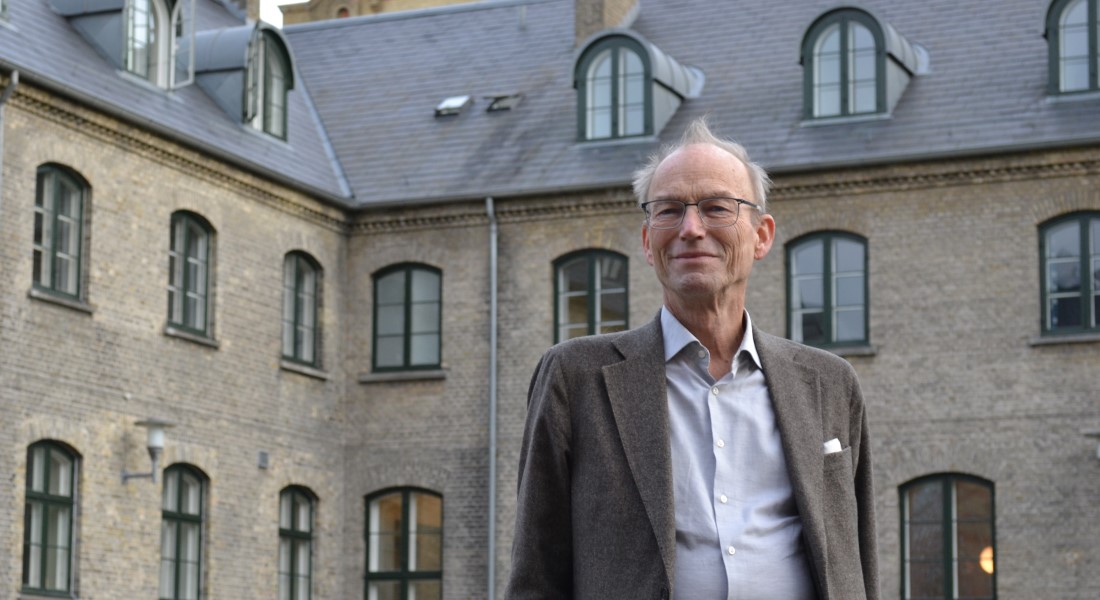Remembering Thomas Hylland Eriksen (1962-2024)
The news of Thomas Hylland Eriksen’s death hit his anthropological colleagues at the University of Copenhagen very hard.

The news of Thomas Hylland Eriksen’s death hit his anthropological colleagues at the University of Copenhagen very hard. We knew him as a highly committed scholar and a dear friend, always so alive and paving new ways of thinking about the world.
Thomas stood as a beacon in anthropology and beyond. He was an acute ethnographer of the local with a broad vision of the global. His deep concern with the urgent issues of our time was coupled with a tireless commitment to public engagement in the hope of making the world a little better. His work on ethnicity, nationalism, globalization, climate change and new communication technologies appears in scholarly publications as well as popular media.
Throughout his career, Thomas practiced and praised the ethnographic commitment to deep research in local worlds. In his talks on acceleration, he often pointed out that while so much is speeding up, some things must be done slowly. It takes time to read Dostoyevsky, to raise children, and to do the participant observation that makes good fieldwork. Deep qualitative knowledge about other people’s lives is only possible with perseverance and patience.
Thomas always held to the necessity of placing such knowledge in historical perspectives and in a macro framework of global connections and developments. He wrote of the contradictions between universalizing forces of global modernity and the distinctiveness of local societies. The task is to understand how global shifts and crises are played out locally, whether local is a suburb of Oslo or an oasis in the Sahara. The contrast in scale is captured in the title of his textbook: ‘Small Places, Large Issues’.
That basic textbook has seen three editions in Norwegian and four in English, as well as numerous translations, most recently to Georgian and Arabic. Generations of Danish anthropology students, like their peers in a host of other countries, have been introduced to the discipline by Thomas Hylland Eriksen.
In times when doubt is cast on the continued relevance of our discipline, his message was passionate: Anthropology is more needed now than ever before because of the greater interconnectedness of peoples through migration and new communication technologies. And not least because of the global scale of contemporary problems.
Thomas never restricted himself to purely academic writing. The son of a journalist, he began writing for newspapers while still a teenager. He was a frequent contributor to print media in Norway and he had a weekly column about books, all kinds of books, including novels.
In November 2021, the University of Copenhagen conferred an honorary doctorate on Thomas Hylland Eriksen for his contributions to anthropology. We thus celebrated his dedication to the fundamentals of anthropology as a social science, his concern with small places and large issues and his continuing efforts to show the relevance of anthropology beyond the academy (see also Susan Whyte's speech).
In his last years, Thomas lived with what he knew was a mortal illness. As was his habit, Thomas wrote books about these crucial matters; his last two were about existence and its ending. In Seven Meanings of Life (2022), he said: ‘The world is a wonderful place, multiple and rich with possibilities, but there is a time for everything, also letting go. The world will manage without you, and you can confidently ship your oars when you know that you have done your best.’
We will have to manage without him, but we salute him for his untiring best efforts. Thank you, Thomas, our honorary doctor.
Susan Whyte, Kirsten Hastrup and Ayo Wahlberg
